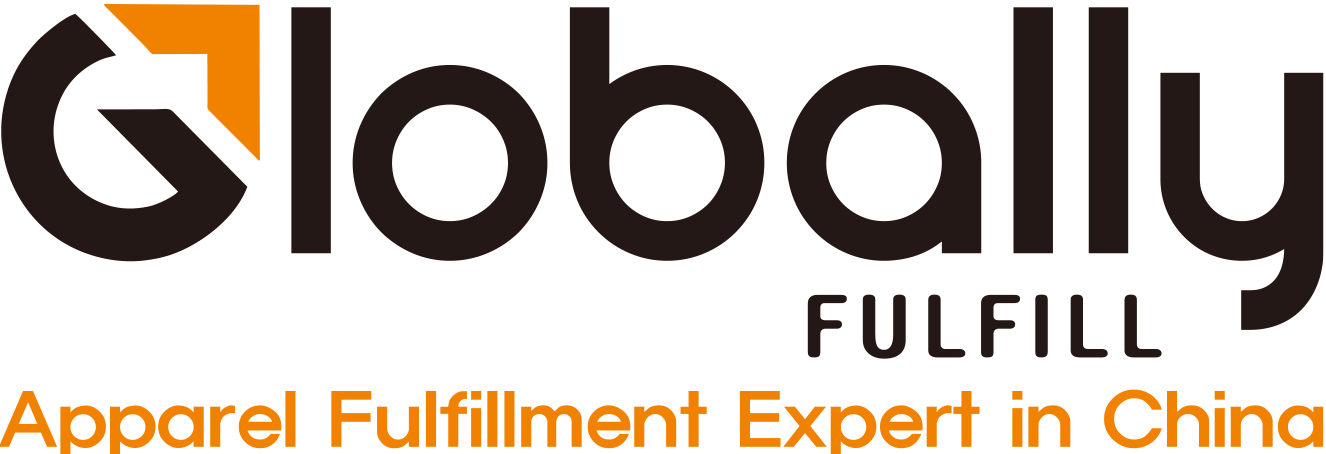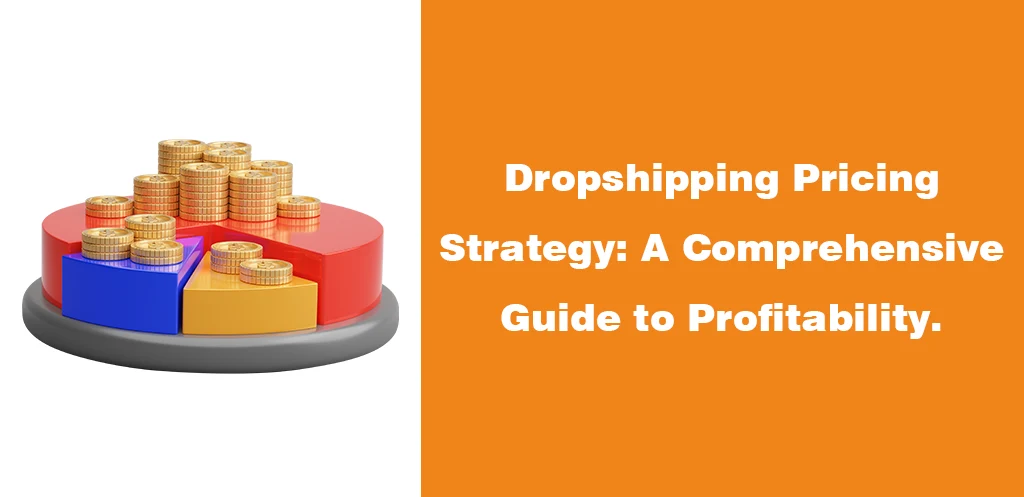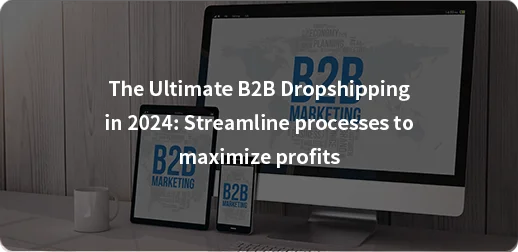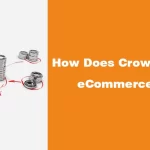Made-in-China and Alibaba are household names when it comes to ecommerce sourcing.
But while both platforms have similar concepts and origins, they work differently and offer distinct features and benefits to users. These differences might make it difficult for you to decide which to use, so today we’ll cover:
- How both platforms work,
- Their respective pros and cons,
- And how they match up when we compare their features.
At the end of this review, we’ll reach a verdict on which of them is better features-wise but for a deeper understanding of their advantages, we’ll also explain when to choose Made-in-China over Alibaba and Alibaba over Made-in-China.
So if you find yourself conflicted making a choice, keep reading to enjoy the insights we lay out today.
What is Made-in-China?
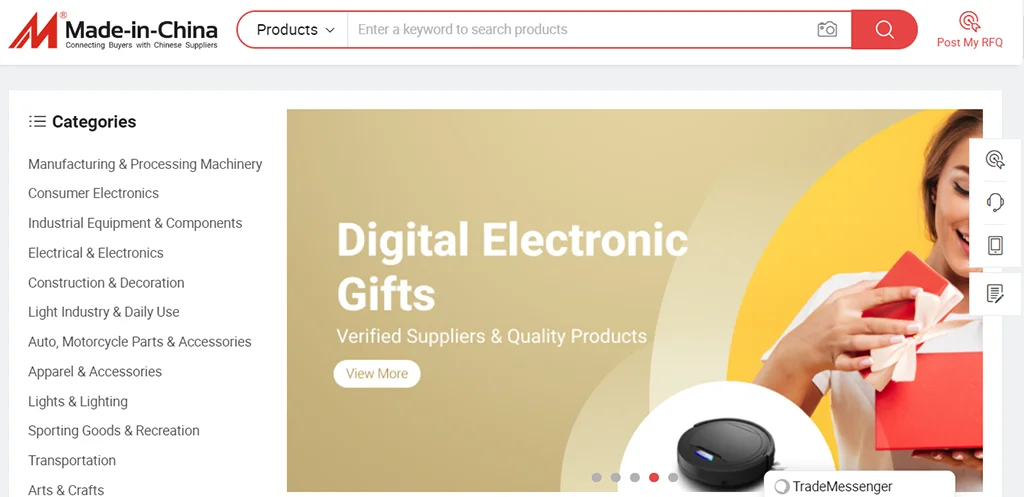
Founded in 1998 and headquartered in Jiangsu, Made-in-China is a leading business-to-business (B2B) platform that allows buyers from anywhere in the world to find a product they like and the suppliers distributing it.
The site boasts a list of over 3 million Chinese suppliers covering 27+ industries, 3,600+ sub-categories and over 40 million products. Despite this variety, Made-in-China’s product specialty leans more towards industrial goods and machinery and less towards consumer products like apparel and beauty products.
Specifically, with the exception consumer electronics, most suppliers on Made-in-China specialize in:
- Manufacturing and processing machinery
- Health and medicine technology
- Industrial equipment and components,
- Electrical and electronics, and
- Construction and decoration
Pros and Cons of Made-in-China
Pros:
- Specialized product categories:
Made-in-China is less of a generalist sourcing platform like Alibaba and more of a specialized one.
- Membership benefits:
You can join Made-in-China’s Diamond or Star Club, which offers personalized support, opportunities to network with others in your industry, and an in-person escort from the company itself if you decide to visit a supplier’s facilities.
Moreover, Made-in-China offers a once-a-month Members Day on the 9th, where members get free samples, coupons, and access to business reports.
- Supplier details:
While both Alibaba and Made-in-China provide details on suppliers, Made-in-China stands out because it offers more detailed information, including helpful FAQs with answers and extensive charts that lay out the specifications of each product.
Cons of Made-in-China:
- Communication barriers:
Most suppliers on Made-in-China are Chinese. If the supplier you want to work with doesn’t speak English and you don’t speak Chinese or have a sourcing partner to ease communications for you, the language barrier can be a problem.
- You must pay for payment protection:
Made-in-China’s payment protection system isn’t free. It costs $29.99 to $89.99, depending on the value of your orders.
- Non-rigorous vetting processes
Made-in-China’s supplier registration and vetting processes aren’t very rigorous, so most suppliers can earn the Diamond Supplier Grade status despite their poor quality goods.
What is Alibaba?
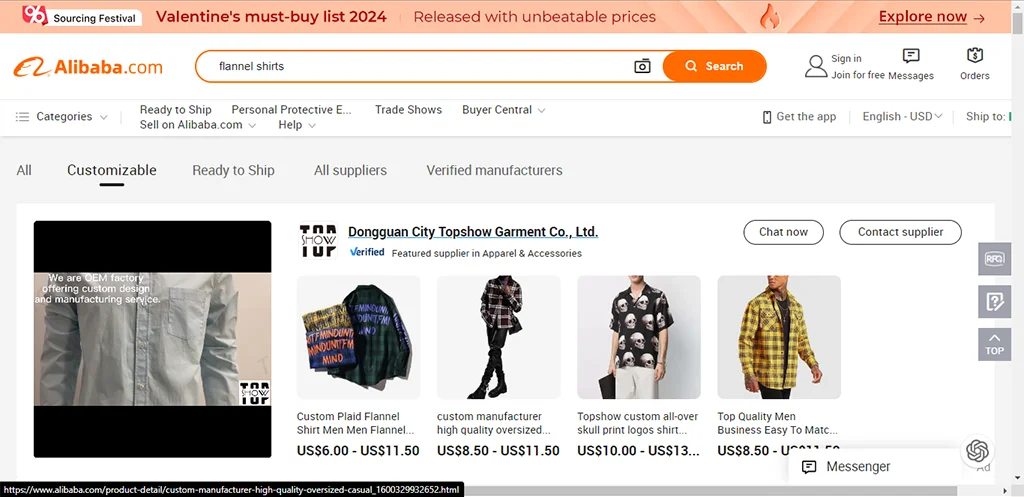
Alibaba, on the other hand, is a global wholesale platform founded in 1999. The platform supports over 200k suppliers who offer 200M+ products in 5,900 product categories.
Going by the numbers, Alibaba boasts the title of the second largest ecommerce marketplace by gross merchandise value. And unlike Made-in-China, there’s not much you won’t find in its directory, from consumer goods like clothing, home decor and electronics to industrial machinery, construction equipment and heavy electronics.
This is because the Alibaba group owns several other international marketplaces besides Alibaba.com, including Taobao, Tmall, AliExpress, and less international-focused sites — which also host millions of products and thousands of suppliers.
Pros and Cons of Alibaba
Pros of Alibaba:
- Product availability
Alibaba gives your business so many options when it comes to sourcing. Plus, with hundreds of thousands of suppliers and millions of products, it’s very easy to navigate and compare between listings.
- Competitive pricing:
Suppliers on Alibaba can offer low prices due to reduced labor and production costs, bulk sales, and direct connections with manufacturers. This affordability makes it an attractive option for sourcing.
- Flexible minimum order quantities:
Compared to most other B2B platforms, small businesses can find suppliers with lower minimum order thresholds. Regardless of whether you dropship or hold inventory, you can always source within your budget.
Cons of Alibaba
- Language barrier:
Similar to Made-in-China, most suppliers on Alibaba are Chinese so you may encounter the same problems with smooth communication.
- Trading companies vs manufacturers
Many companies listed on Alibaba are not actually factories but instead trading companies which order on demand from factories. This means they don’t hold inventory, but dropship by routing your order to the manufacturer.
As a result, you are often not actually dealing directly with manufacturers even though you expect to be dealing with factories and you may not actually pay wholesale rates.
Note; One way to spot these companies is to look for store catalogs filled with seemingly unrelated products. For example, if the same supplier sells clothing, gym equipment and arts & crafts materials, you can be sure they are a trading company.
Still, while trading companies might have a bad rap, you don’t have to avoid them. Compared to manufacturers, trading companies have the most flexible MOQs, often as low as 5 to 10 pieces so if you’re a small business or you’re testing a new product, you can make do with a limited budget.
Alibaba vs. Made-in-China: Features Compared
1. Which company has a wider product variety, Alibaba or Made-in-China?
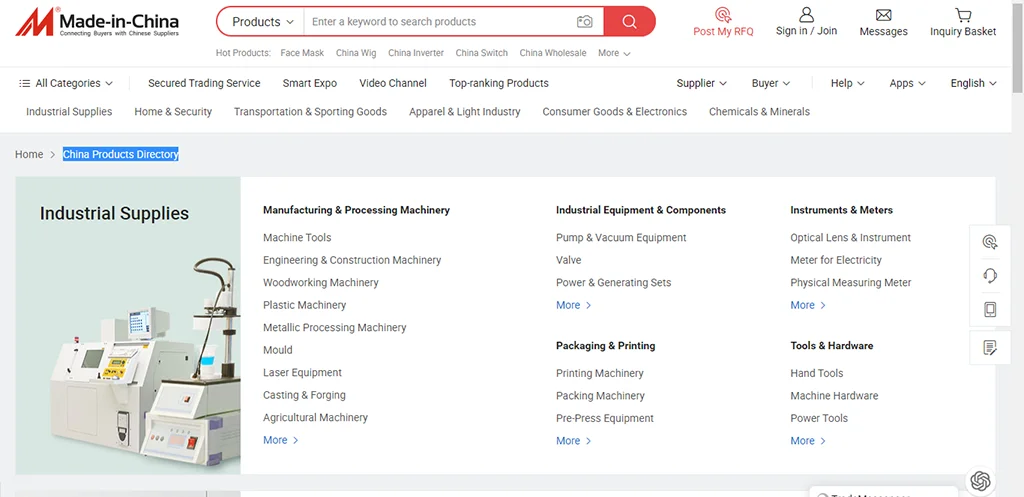
Made-in-China has 27 main industries and 4,300 product categories, consisting mainly of industrial supplies, chemicals and minerals, home & security and more.
Alibaba, on the other hand, offers a wider variety with 41 industries and over 5,900 product variations. But while Alibaba is popular for consumer products, it also has an extensive range of industrial and technical supplies for different sectors.
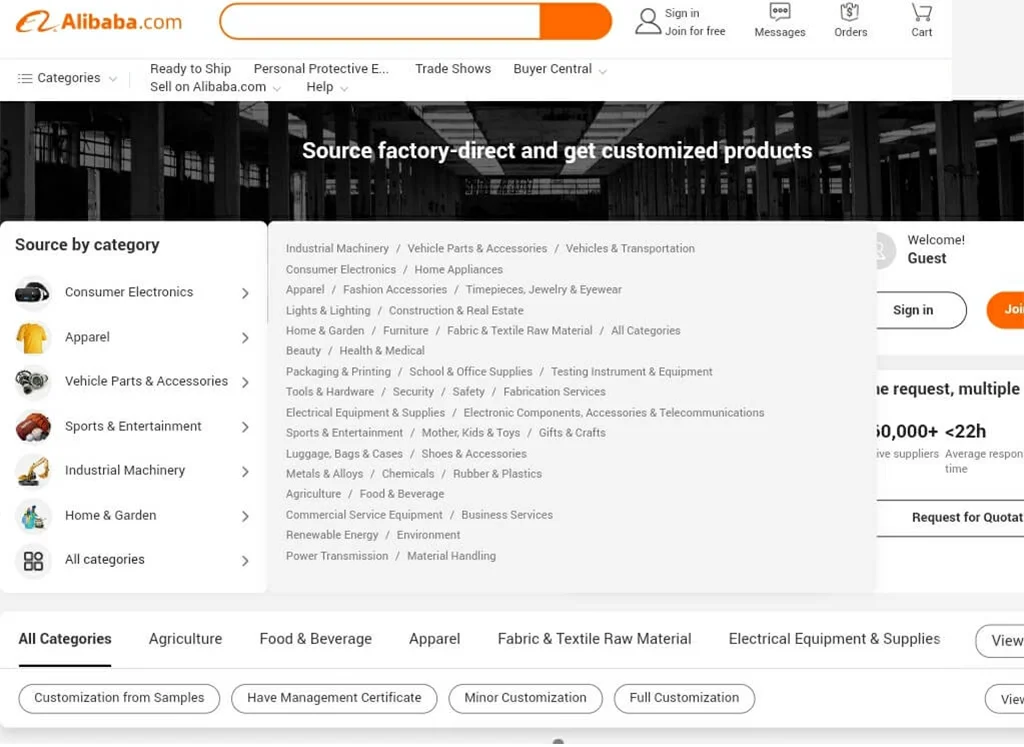
Takeaway: Alibaba’s product range is more extensive than that of Made-in-China.
2. Which one has a wider supplier network, Made-in-China or Alibaba?
With more than 3 million suppliers, Made-in-China has a larger network compared to Alibaba which has 200 thousand and counting.
In response, Alibaba has a more diverse range of suppliers because unlike Made-in-China which lists only Chinese suppliers, Alibaba accepts sellers from all over the world, but mostly from Asia.
Takeaway: Made-in-China surpasses Alibaba in terms of supplier count. In comparison, Alibaba only has a more diverse range of suppliers.
3. Which platform’s suppliers offer lesser Minimum Order Quantities (MOQs)?
A minimum order quantity or MOQ is the lowest number of units a supplier allows you to purchase at one time.
On Alibaba and Made-in-China, the MOQs differ based on the seller and the product in question. But generally speaking, suppliers on Alibaba offer more MOQ flexibility given the platform also caters to consumers.
Additionally, from my observations using both platforms, I find that the average MOQ on Made-in-China is 50 units – 500 units. It gets higher for light use products and lower for machinery.
Meanwhile, on Alibaba, the average MOQ ranges from 1 – 100 for both light use products such as apparel and cosmetics and heavy items like machinery, construction equipment and furniture.
Takeaway: In terms of MOQs, Alibaba sellers tend to have more flexible offerings.
4. Which company guarantees better payment security, Made-in-China or Alibaba?
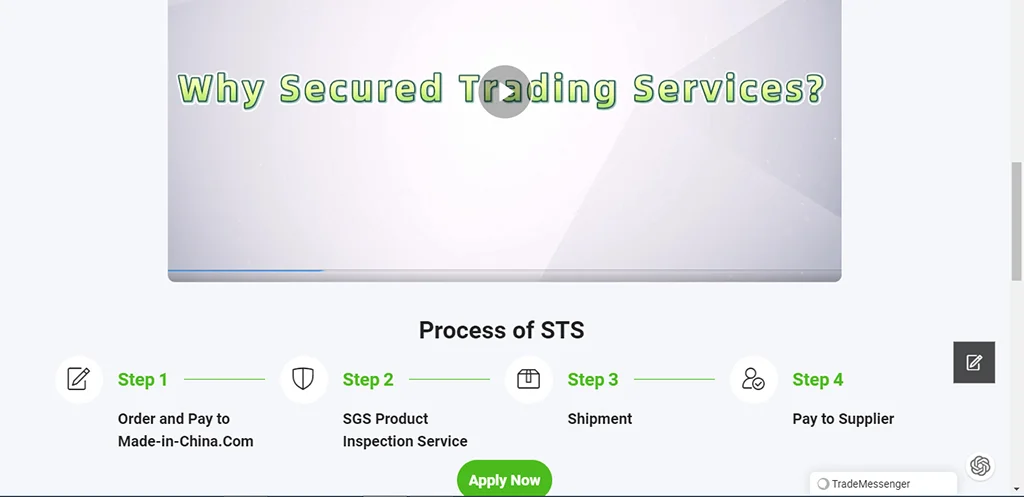
Both Made-in-China and Alibaba operate an Escrow payment system where they hold your money until the seller ships your order and you confirm satisfaction.
Made-in-China calls it Secure Trading Service (STS) and Alibaba calls it Trade Assurance. While both systems work similarly, the difference is that Made-in-China charges an STS fee of $29.99 to $89.99, depending on the value of your order. Whereas Trade Assurance is free.

Takeaway: Alibaba wins this round because it costs nothing to protect your payment.
5. Which company offers better shipping, Alibaba or Made-in-China?
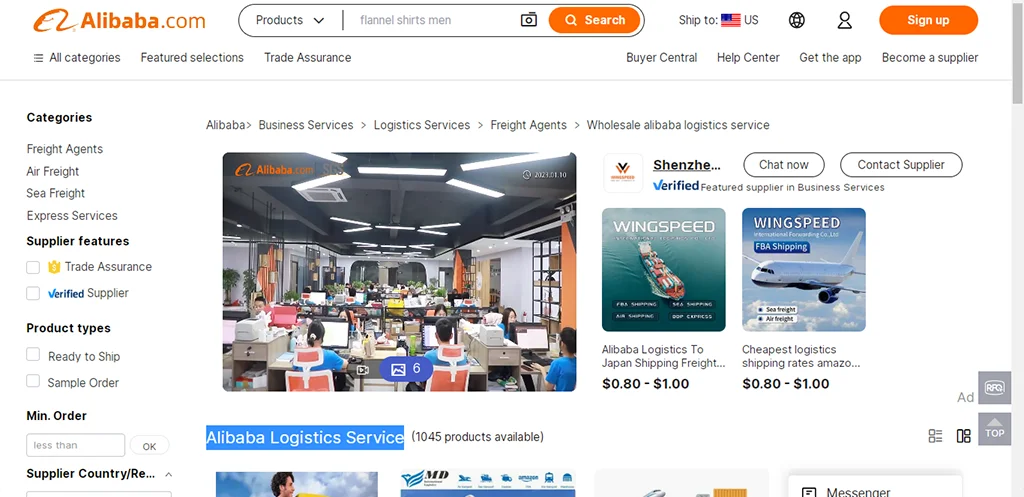
With Alibaba, you can negotiate shipping terms with suppliers to discover if they support your preferred options. If they don’t, you may choose to use Alibaba logistics which offers:
- Reliable tracking.
- Delivery to over 190 countries.
- And competitive air and ocean shipping speeds.
Whereas, on Made-in-China, shipping arrangements vary and you must negotiate with the suppliers you find.
Still, similar to Alibaba logistics, the platform has a list of agents that sell shipping labels and you can send a logistics request to its customer service team for shipping option suggestions.
Takeaway: Alibaba and Made-in-China come close in terms of shipping. I like that both platforms sell shipping through partners because it is in your right to involve the companies if your product goes missing, arrives late or not as described when you use their services.
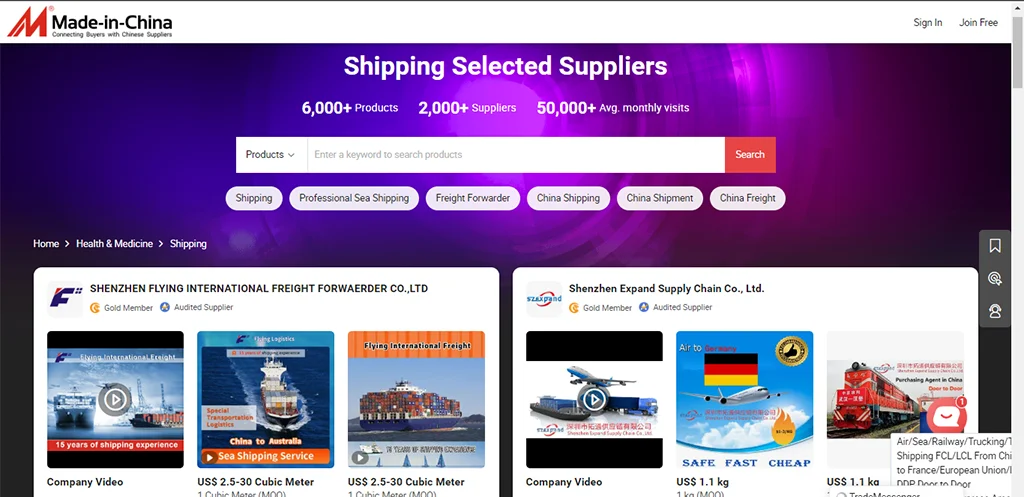
6. Which one has better delivery times, Made-in-China or Alibaba?
Alibaba has standardized delivery expectations it holds suppliers to. On average, by air the delivery will take 3 to 10 days and by sea, the delivery will take 15 – 60 days depending on the type of product you’re sending and the quantity.
In contrast, Made-in-China delivery times aren’t as standardized as Alibaba, so it will largely depend on the supplier and their reliability. As you can see in the image below, Made-in-China lacks a well-outlined shipping and delivery time policy.
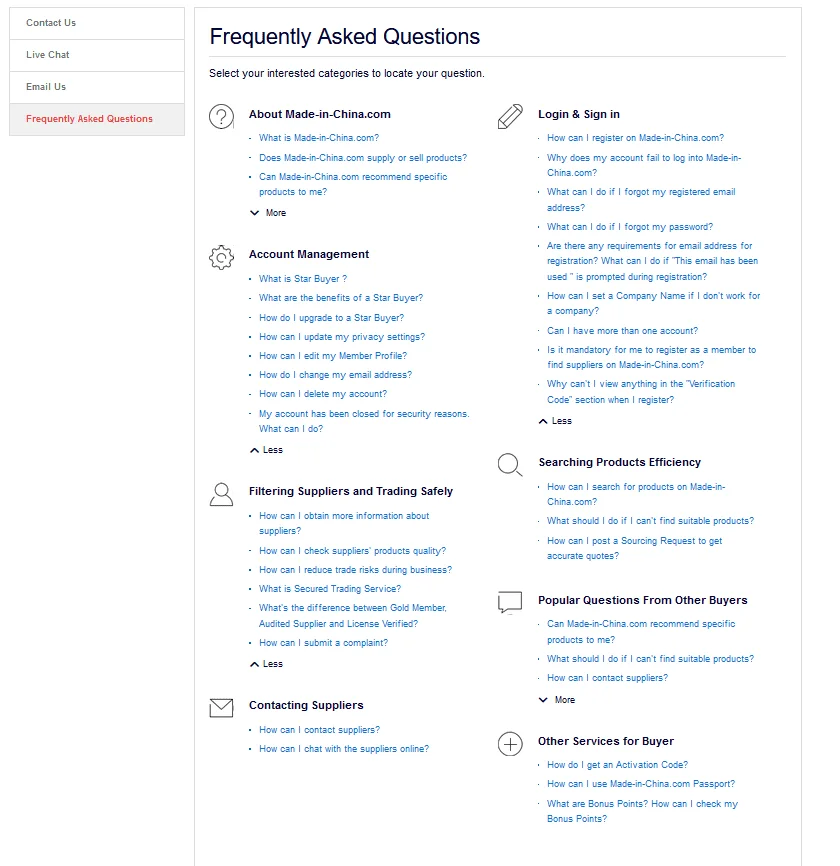
Takeaway: Alibaba’s delivery times are more predictable so it wins this round.
7. Scams and Product Quality:
For a long, long time Alibaba was associated with cheap and poor quality products.
But in recent years, the platform has invested significantly in improving its supplier vetting processes, developing an escrow system to allow buyers return unsatisfactory goods and limiting the kinds of suppliers that can receive its verified supplier and gold membership status.
The result? It’s now easier than ever to find high quality products on Alibaba and its subsidiaries, especially when you perform your due diligence.
In contrast, Made-in-China has various negative reviews online, most of which pertain to product quality.
Moreover, MIC has a less than ideal reputation when it comes to its supplier vetting processes. It’s said that, for the right fee, almost anyone with a business license can earn Diamond Supplier Grade status despite the quality of their offerings.
Takeaway: While Alibaba and Made-in-China have scammers on their platforms, Alibaba’s recent initiatives make it easier to find reliable suppliers compared to Made-in-China.
8. Which company has a better return policy, Made-in-China or Alibaba?
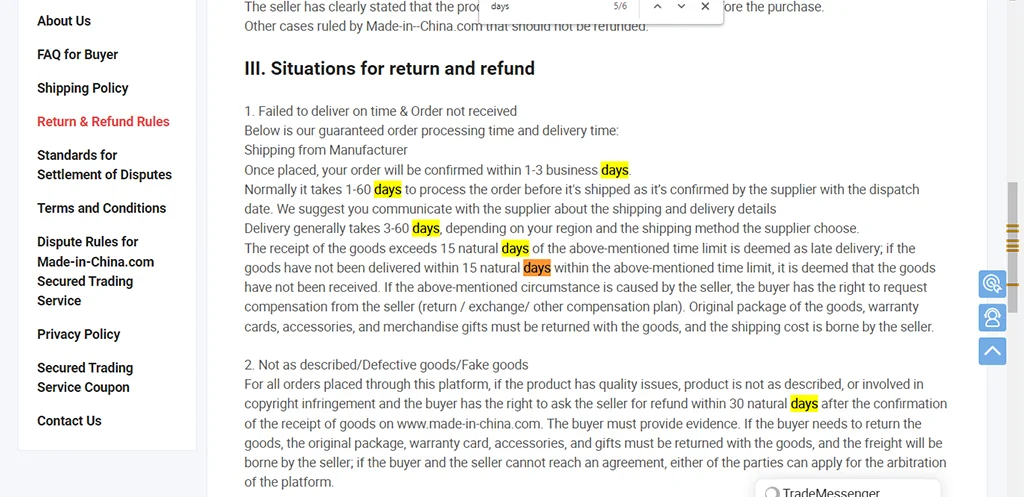
Made-in-China’s return policy allows you to initiate a return within 30 days of receiving your shipment or 15 days after the delivery deadline has elapsed. In both cases, the seller must bear the return unless you agree otherwise.
Similarly, Alibaba allows you to open a return request in the first 30 days after you confirm the delivery of the products. And like Made-in-China, the logistics of returning the goods depends on what you and the supplier negotiate.
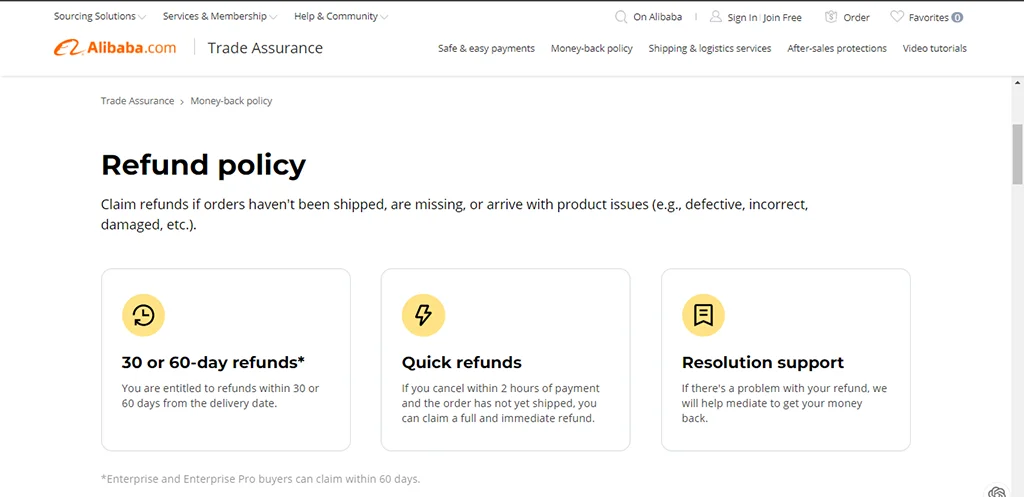
Takeaway: Alibaba offers a more generous returns window compared to Made-in-China but you aren’t guaranteed free returns.
9. Which company offers better customer service, Made-in-China or Alibaba?
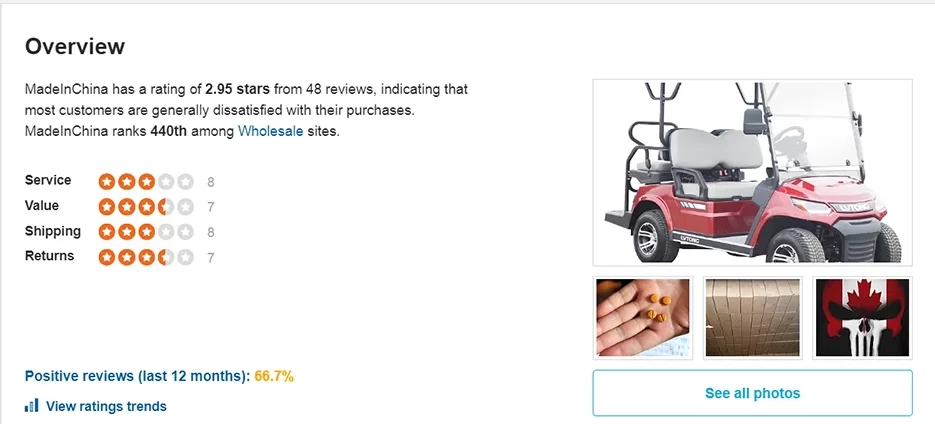
Reviews on this Sitejabber tell different stories for both companies.
As of Dec 29 2023, 1400 reviewers on Sitejabber give Alibaba’s customer service four stars, and positive reviews from other buyers frequently mention how accessible, attentive, and helpful their team is despite the time difference for international buyers.
Meanwhile, 8 reviewers on Sitejabber give Made-in-China’s customer service 3 stars, and general sentiment around the company shows many customers are dissatisfied with their experience. Over the last 12 months, Made-in-China has a positive review trend of 66.7%, and Alibaba has a positive review trend of 80.3%.
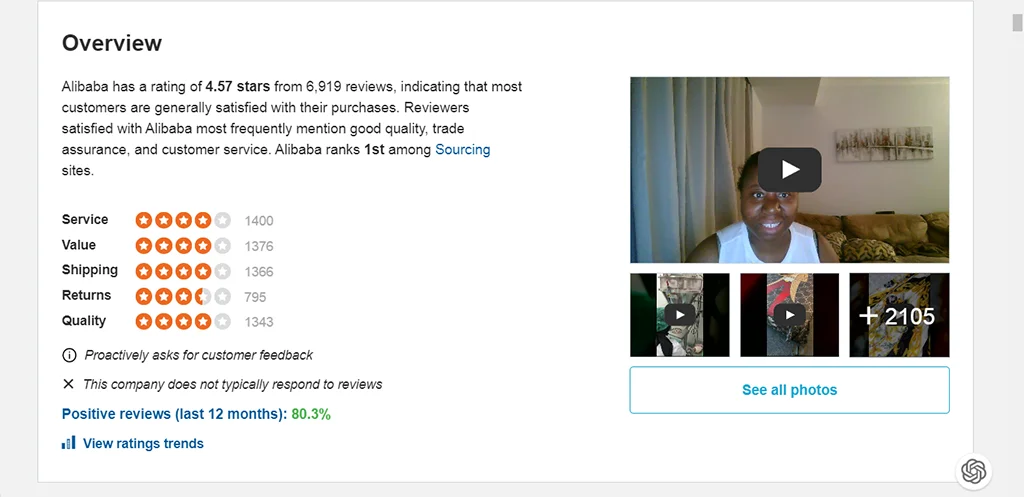
Takeaway: Judging by the volume of reviews and by the ratings themselves, Alibaba triumphs in customer service.
10. Which one offers better prices between Made-in-China vs Alibaba?
Alibaba is known for offering some of the best prices on both individual and bulk order quantities.
This is because of its sheer number of registered suppliers, which ups the need to compete and thus offer competitive prices. Moreover, Alibaba does not have as steep MOQs as Made-in-China, so you don’t have to fork out as huge an investment when sourcing via Alibaba.
Takeaway: Both Made-in-China and Alibaba are renowned for offering affordable wholesale prices. But prices on Alibaba tend to be slightly lower.
Made-in-China vs Alibaba: Which one is better?
From the comparisons we’ve made today, it’s clear that Alibaba is a more reliable sourcing platform in terms of features. Still, both platforms differ so Alibaba isn’t necessarily the best choice for every situation.
To be clear, Alibaba is a good choice for you if you’re looking for a wider product variety, a safer shopping experience, and not having to pay steep MOQ investments. Moreover, as the largest and most successful ecommerce site from China, you can find the best prices on Alibaba.
On the other hand, Made-in-China is suitable for you if you’re looking for more specialized products, specifically inventory in niches such as construction, industrial equipment and machinery, medical technology and more. Additionally, Made-in-China is the better choice when detailed product and supplier information is your priority.
Looking for a smooth and hands-on sourcing solution? We, at Globallyfulfill, will source products for you, negotiate pricing and MOQs with suppliers on your behalf, perform quality inspections, and arrange reliable shipping to any country you have a presence in.
So if you’re ready to find the best China suppliers for your needs, request a free quote now and we will promptly get back to you.
